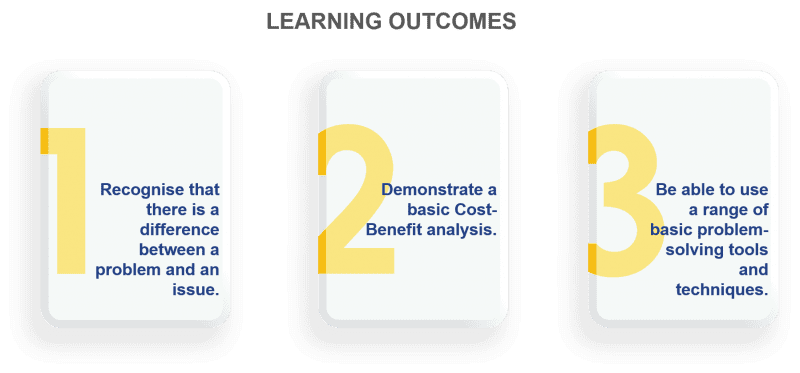This course provides you with a comprehensive introduction to a range of tools and techniques for Problem Solving. You can use these to identify, clarify and then start to develop solutions to real-world work-related problems.
Initially, you will learn about the difference between problems and issues and the 5-step problem-solving process. You’ll learn about how to research problems, the FOG acronym and how to do a Cost-Benefit Analysis. All of which will help you define the problem. You will also do a short mini-audit of your problem-solving skills and experience.
In the second module, you’ll learn about using
- Pareto Analysis for problem-solving
- How to produce an Ishikawa Cause and Effect diagram
- About the 5-7 Whys technique and
- The 5Ws & 2Hs technique.
In the final module, you will learn about GAP analysis, the PDCA model and Affinity diagrams.
All of the tools and techniques in this course are firmly rooted in research-based theory, tried and tested. You can apply them in practice. You will learn both through reading and by doing. Each of the tools and techniques is stand-alone but they can be combined. The more techniques you combine or run one after the other, then the better overall picture of your problem(s) you will have.

This course will take you between 2-3 hours to complete, with an additional 2 hours for additional reading if you want to explore the subject in more depth.



